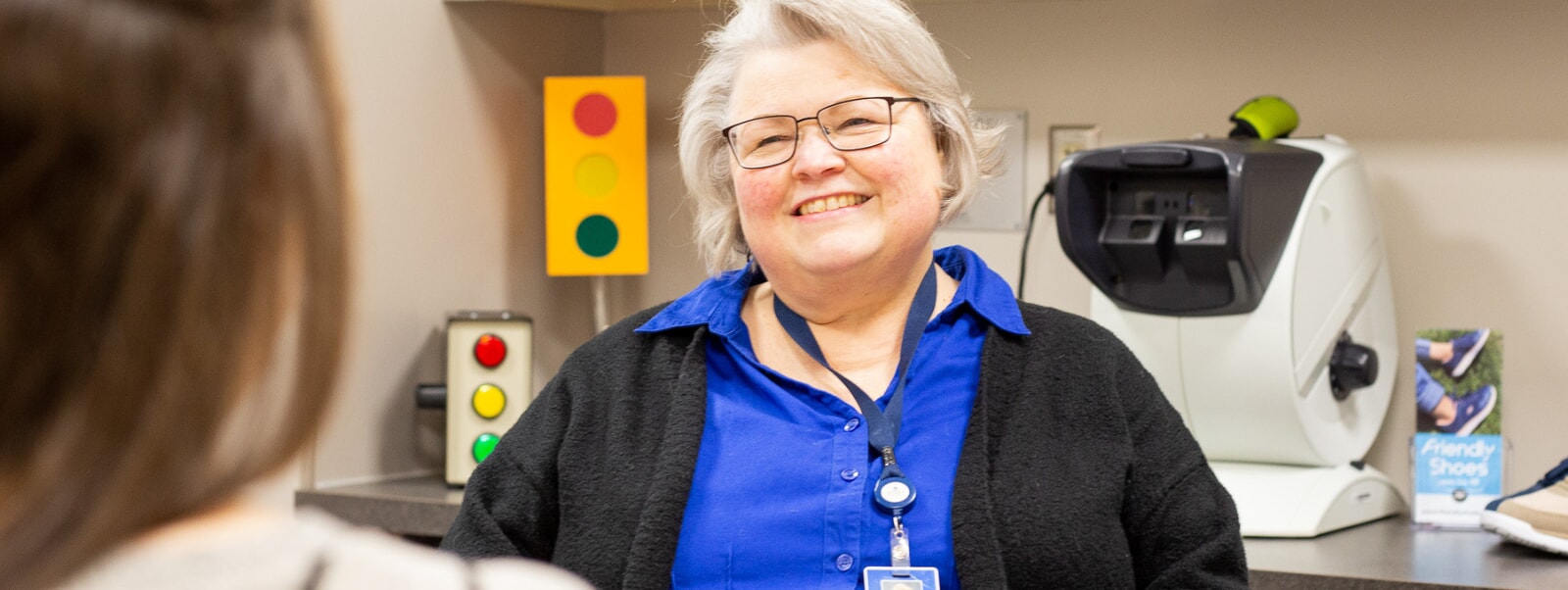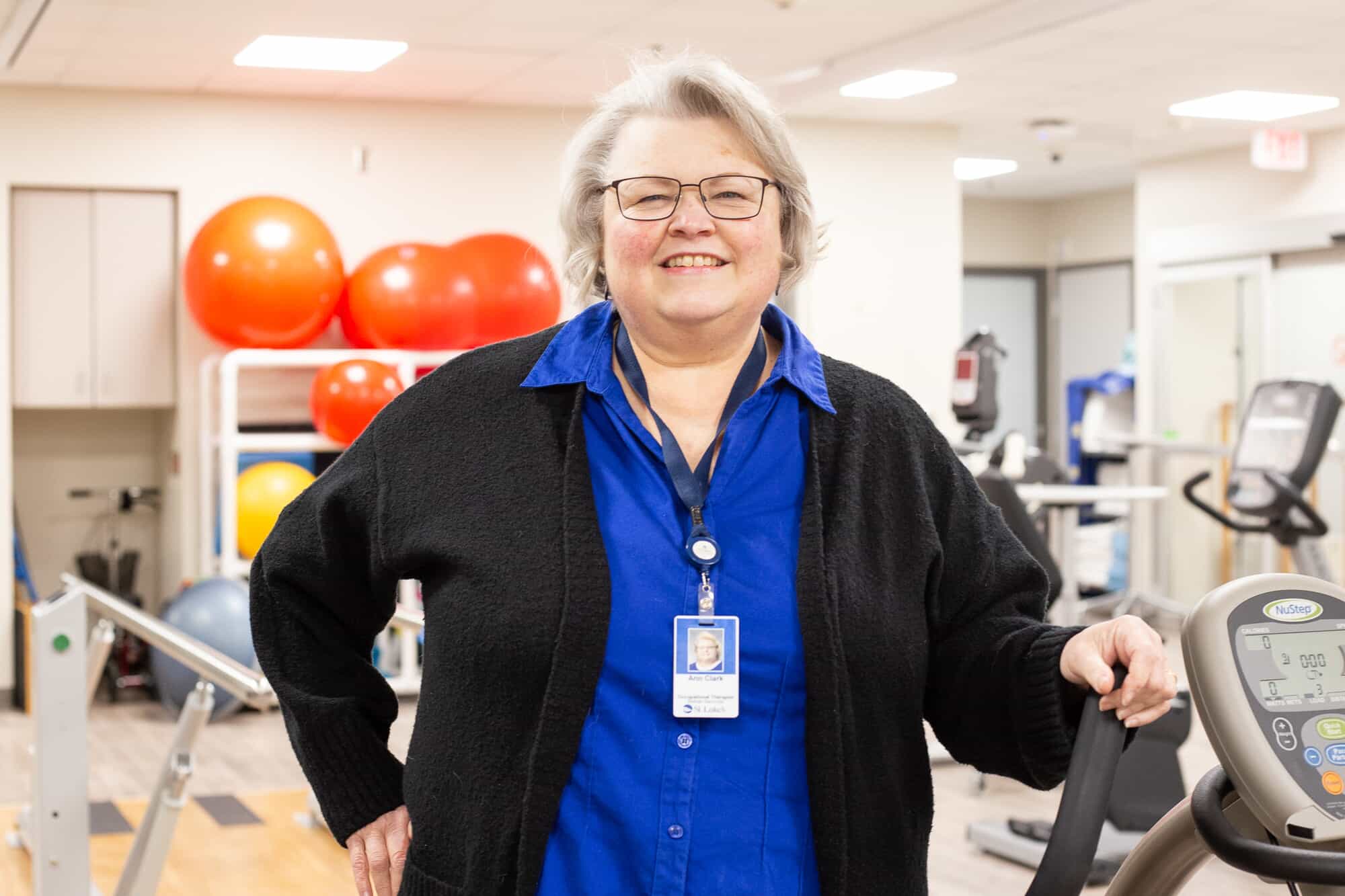Dementia and Occupational Therapy

Occupational Therapist Ann Forrest-Clark, OTL/R, CDRS, LDI, in her office talking with a patient's family member.
How occupational therapy can help those with dementia
“Dementia is not something you should ever carry alone,” said St. Luke’s Occupational Therapist Ann Forrest-Clark, OTL/R, CDRS, LDI. “It’s really important to reach out and access support from the resources around you.”
For people diagnosed with dementia, studies show occupational therapy can significantly improve overall wellness and mental health. It can help people maintain the physical and mental skills they need to carry out daily tasks. It can also simplify tasks so that people suffering from dementia can continue doing them, which lessens the burden for caregivers.

Ann focuses on education and memory support strategies with her early-stage dementia clients. This may mean developing a schedule and a home exercise program to maintain cognitive stimulation plus strength, endurance and range of motion. For more advanced patients, she works closely with family.
She speaks from professional as well as personal experience, having cared for three family members with dementia.
Ann also sometimes visits patients’ homes to conduct safety assessments. “It’s the little things,” she said, “like covering the mirror in the bathroom or closing the curtains at night to avoid the visual illusion that someone is looking in at you. This happens in later dementia and can be highly frightening to the client.”
“Dementia is not something you should ever carry alone.”
She also helps families discuss the delicate topic of driving, along with driving assessments and future planning. She authored the Driving Risk Calculator, a tool used in several countries. For her pioneering work in the driver rehabilitation field, she recently received the prestigious Achievement Award from ADED: The Association for Driver Rehabilitation Specialists.
“Dementia affects the whole family and not just the person diagnosed with the disease,” said Ann. “Occupational therapy can help the client but also the family develop strategies to improve quality of life.”
This service requires a referral. To learn more, call 218.249.6040.
